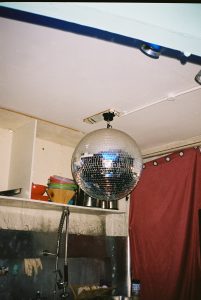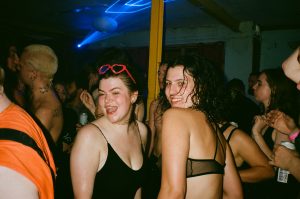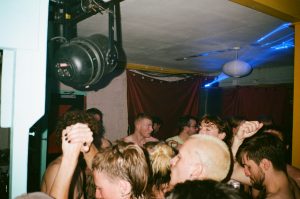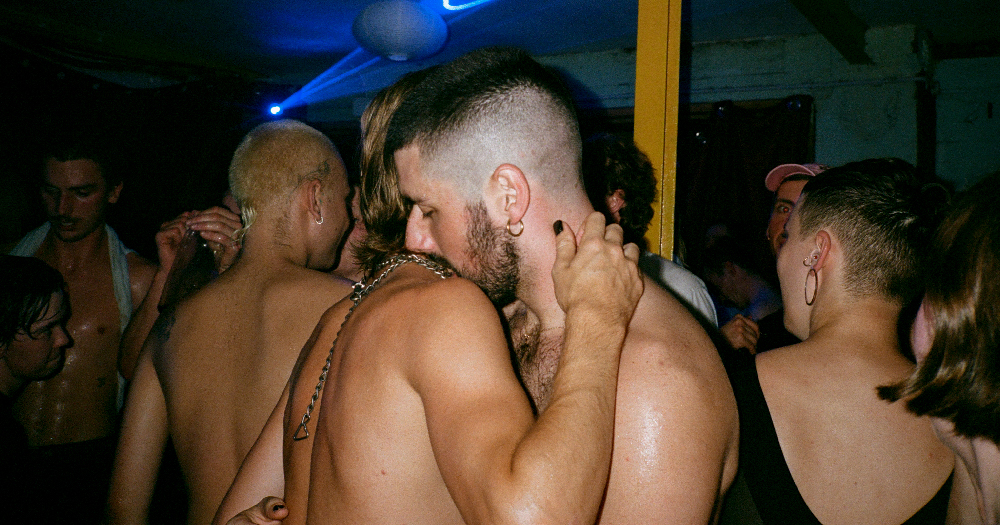As the beloved Dublin cultural space announces it is to close, Jordan Hearns speaks to the people for whom Jigsaw was a community.
Dublin’s arts and cultural spaces have been vanishing one by one over the last number of years, and while this has resulted in a wider debate surrounding their societal importance, many forget that the vast majority of available spaces weren’t always intersectional.
For queer people, women, people of colour, trans people, mincéirs, and others, many of the most ‘accessible’ spaces were anything but. High cost entry fees, prejudiced security, and oppressive, classist door policies were commonplace, ostracising a myriad of clubbers who wanted nothing more than to dance and express themselves, free from inhibitions.
This week, we said goodbye to another space: a small mews building located down an alley off of Mountjoy Square; Jigsaw. Jigsaw, to many, served as a complete other to the overpriced, overhyped, and overcrowded clubs Dublin had to offer.

The communal, DIY nature of a space like Jigsaw allowed a series of queerdos, dancers, lovers and chancers to integrate and converge under a shared appreciation for your immediate other. “Jigsaw was amazing in the way it naturalised my queerness in a community setting” says Roo Honeychild, a key fixture within Ireland’s contemporary Queer nightlife scene.
Roo “felt totally able to exist in that space”, and her “difference to other people was neither ignored nor unduly highlighted… realising that community actually existed, and that it actually wanted me to be a part of it, was an experience of great healing.”
Every night in Jigsaw felt like it could be our last. Anyone familiar with the space was under the impression that closure was inevitable, and at times felt imminent. This could be our last night here, this could be our last dance here, this could be my last kiss here. The spaces’ seemingly eternal ephemerality aided a sense of hedonistic euphoria like no other.
The communal reverence for Jigsaw grew out of its role in providing a space that allowed its attendees to express themselves freely, as Irish artist Jack Scollard recounts: “Jigsaw was a space for personal experimentation… and one of the few spaces where I felt a real sense of belonging to a wider community in Dublin.”

Articulating the impact that Jigsaw has had on me is quite tough. If you had told my closeted teenage self that he would find solace, community and most importantly himself on a small dancefloor, surrounded by sweat-soaked friends and strangers, in front of a DJ tucked away behind a kitchen stage, he’d look at you bewilderedly.
And yet here we are, all these years later, reminiscing about the many times my Klean Kanteen was passed around the club filled with ‘fresh’ water, or the countless hours spent looking for my tote bag submerged amongst the couches and jackets to the right of the dancefloor. I even miss the queue for the cursed toilets.
Aside from its importance as an alternate clubbing space, Jigsaw was also a formative site for an ever widening variety of grassroots activist groups. Activist Naoise Faogain’s relationship to Jigsaw dates as far back as 2004, where they discovered the space, formerly known as Seomra Spraoi, through the DIY Punk scene.
In 2016, Naoise found their way back to what we now know as Jigsaw, met with the same faces they saw many years before. Seeing those familiar faces represented a “tangible energy of community care, of love, of safety, of creativity, that owes itself to the people involved.”

In the last few years, Naoise has been involved with numerous activist groups, such as Dublin City Housing Action, Queer Action Ireland, and Take Back the City, amongst others. In January 2020, they ran their last event in Jigsaw – throwing a rave/fundraiser for the Small Trans Library. The lineup, with an all trans lineup of DJs, facilitated what “was one of the most amazing and affirming nights of my life.”
They were surrounded by people they’d gotten to know “from their Seomra days, through to housing comrades, an amazing adopted queer family, and the splattering of pals made through all of the amazing ddr (Dublin Digital Radio) and Dip nights.”
This, to Naoise, was the perfect juxtaposition of what Jigsaw had come to represent for them – “a space where you and all your mates could come together to work on trying to change things for the better, but also to be a monstrous session mot with terrible dancing ability and an insistence on always being on the dancefloor until the very bitter end.”
And dance we did.
Throughout the last number of days, one of the most endearing outcomes of Jigsaw’s closure has been the sheer volume of tributes paid to it. Seeing ravers, punks, queerdos, activists, artists, DJs, musicians, and almost everyone in-between share their memories merely reinforces the true communal nature of it.

In all of this, the images attached to such tellings all share a commonality – each group looks at home there. As Jack noted, “it was only apt that the space bore closer resemblance to a family home (with a piano tucked in the corner of the dancefloor and a small outdoor garden) than an actual club given that the community on that dancefloor truly felt like family.”
The freedom that Jigsaw offered all of us, in the face of the ever-increasing privatisation and commodification of space in Dublin, has illustrated the resilience and vitality of a thriving underground community, built upon shared values and care for one another. Whilst the collective mourning being felt is more than appropriate, it is also indicative of a deep valuing of spaces such as these.
I have no doubt that great potential will come from the communities created and solidified on the dancefloor of Jigsaw. As a community, we must come together to channel our energy into the creation of something new, something communal, something that’s ours for the taking.
We haven’t stopped dancing yet.
© 2021 GCN (Gay Community News). All rights reserved.
Support GCN
GCN is a free, vital resource for Ireland’s LGBTQ+ community since 1988.
GCN is a trading name of National LGBT Federation CLG, a registered charity - Charity Number: 20034580.
GCN relies on the generous support of the community and allies to sustain the crucial work that we do. Producing GCN is costly, and, in an industry which has been hugely impacted by rising costs, we need your support to help sustain and grow this vital resource.
Supporting GCN for as little as €1.99 per month will help us continue our work as Ireland’s free, independent LGBTQ+ media.
